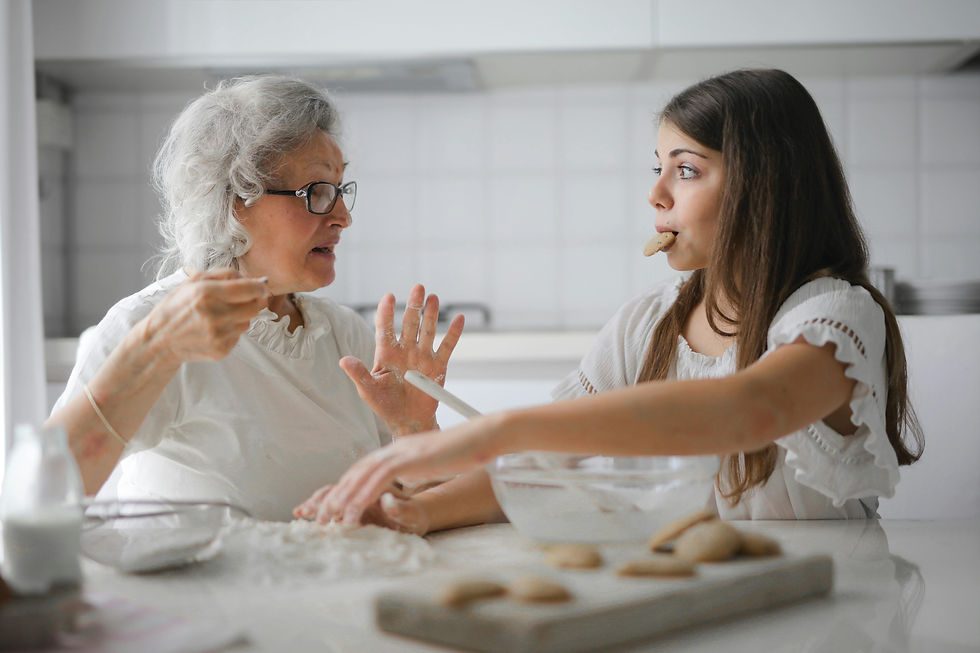Being a Friend to Your Teen and Young Adult Grands
- Aug 17, 2022
- 3 min read
Updated: Oct 7, 2022
Being a friend to teen and young adult Grands may not be easy. At these ages, young people are breaking away from their parents and discovering who they are as individuals. It’s maturing work that needs to be done, but families often deal with rebellion and strife in this time period. For grandparents, it could be a time we become irrelevant or a time we shine as an older, wiser friend. Here are three things to keep in mind as you work on being a friend to your teen or young adult Grands.

Remember – Pause and remember your teen years. More than likely they had their share of difficulties, emotional turmoil, doubt, and fears about the future. That part of the teen years hasn’t changed! Your Grand is struggling with some of the same things you did. BUT. They are also dealing with a very confusing and rapidly changing culture. Never in the history of America have values been so scattered across a multitude of lifestyles. Never has communication flown at the speed with which we must take in it now. Remember your teen years, add in today’s change factor, and be compassionate in your friending efforts.
Listen – These are years where listening can make a huge difference in how your long-term grand relationship develops. Can you hit the pause button on expressing your own opinions long enough to hear what your Grand is telling you? Verbally or nonverbally? Right now, suicide rates among young people are high. Fear and feeling alone contribute to that. Be the friend they need that can truly hear what they are saying and find the underlying needs being expressed. When we’ve lived multiple decades it’s easy to fall into the trap of thinking we know all the answers. Sometimes, a young person doesn’t need a directive, they need a shoulder to cry on and an ear to listen to what their heart is saying. When young people feel heard, they’re much more likely to hear what you have to say to them.
Judge Not – The biblical imperative to judge not lest we also be judged, has application when dealing with teens. They may be doing crazy things, dressing in ways we interpret as ugly, vulgar, or rebellious, or perhaps experimenting with things that make us uncomfortable. Don’t be quick to judge and dismiss the child.
Before we go further, I am not saying you must suddenly accept values or moral decisions that go against your own closely held beliefs! What I am saying is again, hit the pause button. Why is your grand doing what they’re doing that you don’t agree with or that makes you uncomfortable? If you listen and explore their reasoning, you may find they are testing waters and really want someone to give them an alternative or a boundary. They may be following a friend’s lead, but looking for an out from activities that make them uncomfortable, too. Don’t be the judge, be the friend who hears them and guides them into wise, mature choices.
The teen and early adult years are incredible times of learning and growing emotionally and socially. Don’t disengage at this crucial time. Be patient, watch for signals of trouble, and keep the door open to communications. If we don’t give up on building relationships and friendships, our Grands won’t either. Far too often, when teens and young adults get difficult, the people around them back off. That won’t build friendships. Friendships develop through the struggles, not after them.
For more resources and encouragement curated just for grandparents sign up for our monthly newsletter today!




Comments